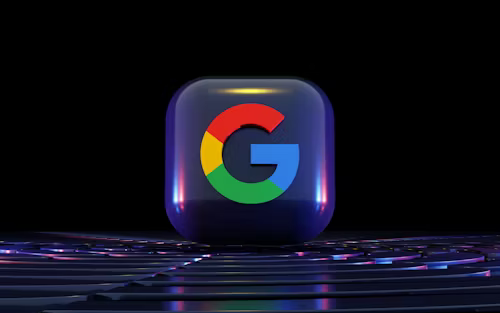In what could be one of the most consequential legal battles in tech history, Google is at the centre of a major antitrust trial that’s making waves across the digital marketing landscape. From forced divestitures to the future of search as we know it – here’s everything you need to know.
Background to the trial
Why is Google under scrutiny?
At the heart of the Google antitrust case is the U.S. Department of Justice’s (DOJ) accusation that Google has been unlawfully maintaining monopolies in search and search advertising. It’s not just about how powerful Google is—it’s about how that power is being used to edge out competitors and control the playing field.
For marketers, this matters. Google isn’t just a tool we use – it’s the gatekeeper of how audiences find information, products, and services.
What are the proposed remedies?
To level the playing field, the DOJ is proposing some pretty drastic solutions. Top of the list? Forcing Google to sell Chrome—yes, the world’s most popular web browser—and possibly even spin off Android.
Why?
Because these platforms give Google a built-in edge in directing users toward its own services, especially its search engine. Breaking that integration could change how we all think about digital visibility.
Exclusive deals and control Over defaults
The power of default settings
One of the most controversial points in the trial is how Google maintains dominance—by paying companies like Apple and Samsung to make its search engine the default on devices and browsers.
These aren’t small deals. We’re talking billions.
And from a user’s perspective? Most people don’t change their default settings, meaning Google is the go-to by design, not necessarily by choice.
Why does this matter for competition?
This dominance through default setups makes it incredibly difficult for other search engines or AI assistants – like Mark the Marketer – to compete.
Less competition means less innovation. It also means marketers have fewer options for reaching audiences outside of Google’s ecosystem.
The browser battleground and AI evolution
Why Chrome matters in the AI era
Chrome isn’t just a browser. It’s a data engine.
Every click, every search, every website visited contributes to a massive pool of behavioural data that fuels Google’s AI and advertising algorithms.
That’s why this browser is such a focal point in the Google antitrust trial. It’s not just software, it’s strategy.
In fact, OpenAI has said they’d consider buying Chrome if Google were forced to sell.
That tells you everything you need to know about its value in the AI arms race.
The rising role of AI in search
With tools like Gemini AI and Google’s new AI Overviews, search is evolving. We’re moving from 10 blue links to instant, AI-generated answers.
That might be great for users – but it raises real challenges for marketers. If your site isn’t part of the AI summary, you might be left out of the conversation entirely.
Read more about how Google’s AI is changing the game for SEO.
What does this mean for SEO and marketing?
Shifts in the SEO landscape
Let’s be honest: AI is rewriting the SEO rulebook.
With Google’s AI Overviews showing direct answers on search pages, organic CTRs are likely to fall. Ranking #1 doesn’t carry the same weight if users get what they need before clicking.
The focus now? Becoming the source AI chooses to summarise, not just outranking competitors.
Increased need for multichannel visibility
This trial is a wake-up call: don’t put all your traffic eggs in Google’s basket.
As the digital landscape shifts, marketers need to diversify. Build your brand on social. Nurture email subscribers. Explore visibility on platforms like Bing, Brave, and even ChatGPT integrations.
Preparing for a post-Google-dominant future
Whether or not Google is forced to break up, the pressure alone is changing the game. For marketers, that means future-proofing your strategy by:
- Improving content depth and user experience
- Investing in thought leadership and owned channels
- Optimising across multiple ecosystems, not just Google’s
Conclusion
The ongoing Google antitrust trial is more than just a legal battle, it’s a potential game-changer for the entire digital marketing ecosystem. Whether it leads to structural changes or not, the message is clear: the landscape is shifting.
From Google’s dominance through default settings and browser power, to the rising influence of AI in search, marketers are being called to adapt. It’s no longer enough to optimise for rankings – you need to optimise for visibility across a multichannel, AI-powered world.
As we navigate this turning point, the smartest move is to stay agile, diversify your traffic sources, and build content that stands out, not just in search results, but in the AI-driven answers of tomorrow.



